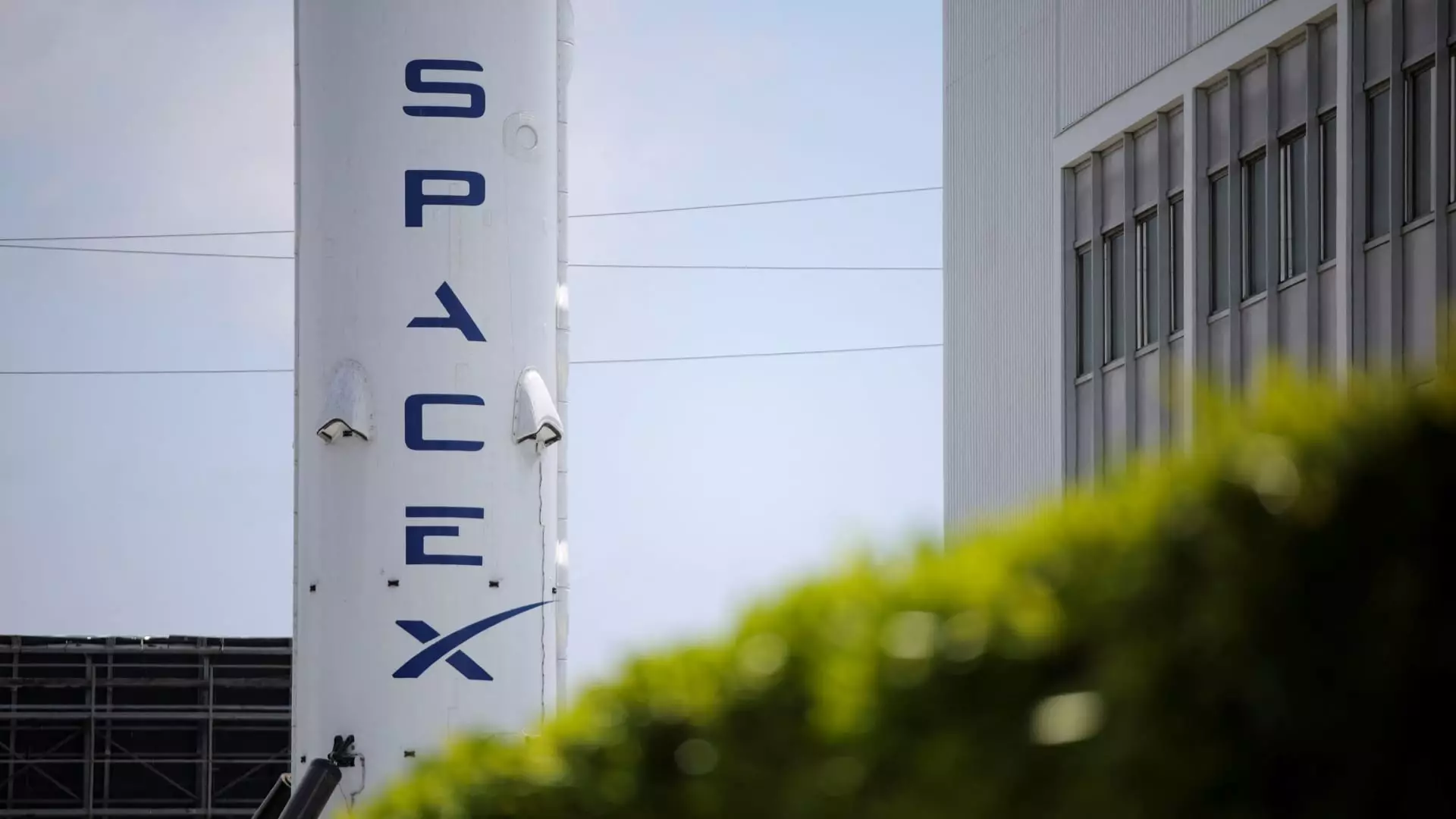In an age where the line between personal vendetta and professional obligation blurs ever more dangerously, the recent clash between President Donald Trump and Elon Musk, founder of SpaceX, serves as a striking case in point. The White House’s audacious move to direct the Defense Department and NASA to evaluate the significant contracts held by SpaceX is indicative of a troubling trend: political decisions rooted not in policy merit but in personal disputes. This is not merely a corporate scuffle; it is a potential threat to the foundational goals of national security and space advancement, a confrontation that could undo years of vital partnerships between the private sector and government agencies.
The administration’s review of SpaceX contracts, said to total around $22 billion, is a particularly perilous maneuver. By placing emphasis on political retribution over rational oversight, the Trump administration risks stifling innovation and sabotaging a vital segment of the U.S. defense apparatus that has forged a crucial partnership with SpaceX. Such allegations of retaliation are not merely about business; they are about the capacity of the government’s governance to maintain its integrity in the face of personal grievances.
The Role of SpaceX in National Defense
SpaceX has emerged as an essential player in U.S. aerospace—not only for its role in launching satellites but also for potential contributions to America’s missile defense systems. The company’s Dragon spacecraft is currently the only American vehicle capable of transporting astronauts to the International Space Station. This symbiotic relationship with the U.S. government raises serious questions when placed under the specter of political sabotage. If federal contracts are being scrutinized not for their operational efficiency, but rather as tools of political ammunition, it could lead to disastrous outcomes not only for SpaceX but for national security at large.
Experts in the governance field have expressed concern that these political intrusions can destabilize the integrity of governmental decision-making processes. Scott Amey, a contracting expert and legal consultant, poignantly pointed out the absurdity of relying on the egos of two powerful individuals to dictate policy that fundamentally impacts crucial sectors. The proper channels of governance must prioritize public interests and national security above petty disputes.
The Irony of Political Scrutiny
Musk’s prior role as a senior advisor to Trump, coupled with the fact that he led the Department of Government Efficiency, creates an ironic twist in this narrative. His initiatives to cut costs and improve efficiency could now be weaponized against him. The notion that Musk’s own methods of scrutinizing contracts could come back to haunt him is both a fascinating and troubling aspect of this situation. If our leaders truly aspire to eliminate wasteful spending and enhance accountability, then such scrutiny must not be selective, arising only in times of personal conflict.
That being said, it is alarming that personal relationships and political power plays are influencing the way government contracts are distributed. In an environment where national defense and technological advancement are of the utmost importance, we cannot afford to let personal grievances dictate the operational framework of federal contracts. The focus should indeed be on the efficacy and contributions of firms like SpaceX, not on the wrangling of two men whose egos might overshadow critical national interests.
The Implications of Political Retaliation
The implications of potential retaliation against SpaceX could be catastrophic. The U.S. has invested heavily in the firm, establishing it as a key player in national security initiatives. If the administration chooses to undermine or abandon its contracts simply due to a personal spat, it could lead to a void that other nation-states might eagerly exploit. The consequences of such a move extend beyond just the financial aspects of the contracts; they touch on the very fabric of American technological leadership in the global arena.
We are living in a world where innovation is the currency of future power. As countries globally invest in space technologies and defense capabilities, the U.S. must remain vigilant to ensure that its assets—such as SpaceX—are not compromised due to temporary political spats. The need for rational, thoughtfully implemented policies has never been greater. As engaged citizens and stakeholders invested in the future of our national security and technological advancement, we must call for a fair and unbiased contracting process that aligns with the best interests of our country.
It’s time we advocate for a governance ethos that prioritizes competency over personal grievances, ensuring that our national partnerships—especially those as significant as those involving SpaceX—are driven by a commitment to excellence and the public good.


Leave a Reply